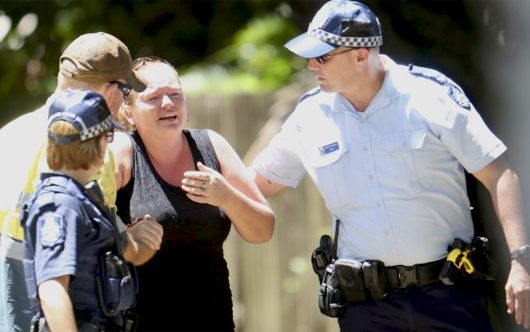
Sydney, Dec 19: Eight children have been killed and a woman injured, police said on Friday, during what several media outlets reported was a mass stabbing in Australia's tropical northern city of Cairns.
Australia is already in a state of heightened alert after police stormed a Sydney cafe early on Tuesday morning to end a 16-hour hostage standoff in which three people were killed, including the hostage-taker.
Queensland state police said in a statement they were called to a house in the Cairns suburb of Manoora just before midday after reports of a woman with serious injuries on the premises.
They found the bodies of the children, aged between 18 months and 15 years, when they were examining the location.
It was not immediately clear whether the children were from one family, what their relationship was to the injured woman, or whether the woman was involved in their deaths, police said.
The woman, aged 34, is receiving medical treatment for her injuries, police said, and is assisting them with their investigation.
While unrelated to the mass stabbing in Cairns, the Sydney siege has triggered an outpouring of grief, with shocked Australians laying thousands of bouquets of flowers at a makeshift shrine in a central city mall near the siege cafe.
Police in Cairns urged calm. "There is no need for the public to be concerned about this, other than it is a tragic, tragic event. The situation is well controlled at the moment and there shouldn't be any concerns for anyone else," Detective Inspector Bruno Asnicar told reporters.
Specialist officers were being sent from Brisbane, the state capital, to assist with the investigation, Asnicar said. He stressed that information was still sparse and that the number of dead could rise or fall.
"I believe there is eight ... the scene has been locked down and that may go up or down," Asnicar said.
Australian media outlets reported that the neighbourhood was predominantly inhabited by indigenous Aboriginal Australians, and was known by residents to have a high crime rate.





Comments
Add new comment